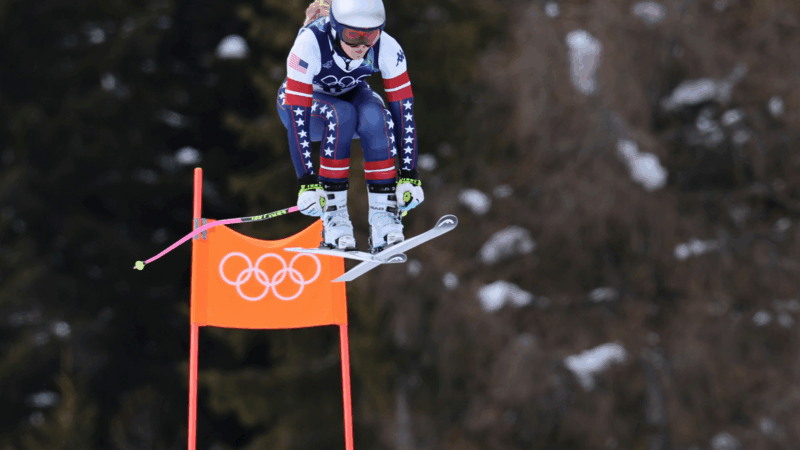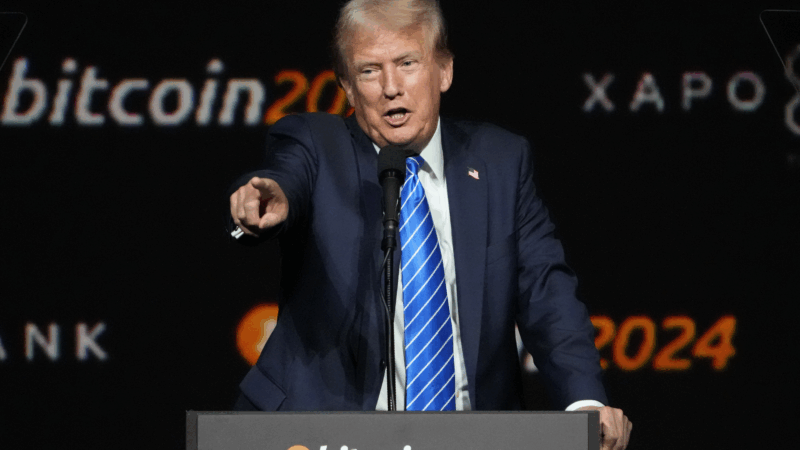A Ukrainian actress saw herself in a White House video — and created one in response
KYIV, Ukraine — A social media video promoting President Trump’s tax bill is getting a lot of attention in Ukraine. The reason involves a TV star, a mission and a powerful Ukrainian weapon — humor.
Last week, the White House posted a video on its official Instagram page, showing a woman working at a computer late at night.
“Work more, keep more,” the subtitles read. “No tax on overtime, courtesy of the one big beautiful bill.”
The post received hundreds of comments. Many were from Ukrainians. “That’s our Motrya,” they wrote.
Motrya — played by Antonina Khyzhniak, a well-known Ukrainian actress — is a character from Spiymaty Kaidasha, To Catch the Kaidash, a 2020 Ukrainian TV drama series.
Speaking with NPR by phone, Khyzhniak recalls the day in late June when her smartphone started pinging nonstop.
“I was bombarded with hundreds of messages, tags and comments, ” she says. “I did not understand what was happening and where this video came from.”
At first Khyzhniak thought it might have been made using artificial intelligence. But the interior, clothes and laptop looked so familiar. Then she remembered: she had taken part in a video shoot to generate stock footage which can be purchased and is often not copyrighted.
It wasn’t digital magic: it was part of her real life as an actress.
A celebrity in her homeland, Khyzhniak knew how to make the most of the moment. She made her own video, appearing as both herself and President Trump. Her portrayal of the U.S. president involves using an animation of his face on her body and imitating his voice.
In the video, Khyzhniak acts out an imaginary negotiation between herself and Trump.
“I need your face,” Khzhniak’s Trump says.
“I need…. 5 Patriots,” she responds.
“Deal! Yes!”
Patriots are state-of-the-art, American-made air defense systems that help protect Ukraine from Russian attacks. Now that these attacks have been escalating for months, Ukraine needs more Patriots.
Khyzhniak tells NPR that her video, though seemingly lighthearted, was an opportunity to talk about what Ukrainians are going through.
“You fall asleep and you don’t know whether you will wake up, whether you will be lucky in this lottery to survive,” she says.
On July 1, the White House announced that it is stopping some weapons shipments, including air defense missiles that have been already promised to Ukraine.
Before this decision, Khyzhniak had joked that maybe one day she could speak with Trump for real.
And — in another joke — she made clear in the video and in her NPR interview that she’d dress the part.
Many Ukrainians were shocked in February when a Trump-aligned cable news correspondent mocked Ukraine’s President Volodymyr Zelenskyy during a White House visit for not wearing business attire — even though the Ukrainian president is world-famous for wearing combat-style black, gray or khaki cargo pants and sweatshirts decorated with Ukrainian national symbols, to show he is leading a nation at war.
Khyzhniak suggested she would dress in a way to deflect any sartorial outrage, should she get a negotiations invite.
“Well, I do have a suit,” she laughed. “I’m ready to go.”
In this Icelandic drama, a couple quietly drifts apart
Icelandic director Hlynur Pálmason weaves scenes of quiet domestic life against the backdrop of an arresting landscape in his newest film.
After the Fall: How Olympic figure skaters soar after stumbling on the ice
Olympic figure skating is often seems to take athletes to the very edge of perfection, but even the greatest stumble and fall. How do they pull themselves together again on the biggest world stage? Toughness, poise and practice.
They’re cured of leprosy. Why do they still live in leprosy colonies?
Leprosy is one of the least contagious diseases around — and perhaps one of the most misunderstood. The colonies are relics of a not-too-distant past when those diagnosed with leprosy were exiled.
This season, ‘The Pitt’ is about what doesn’t happen in one day
The first season of The Pitt was about acute problems. The second is about chronic ones.
Lindsey Vonn is set to ski the Olympic downhill race with a torn ACL. How?
An ACL tear would keep almost any other athlete from competing -- but not Lindsey Vonn, the 41-year-old superstar skier who is determined to cap off an incredible comeback from retirement with one last shot at an Olympic medal.
Trump promised a crypto revolution. So why is bitcoin crashing?
Trump got elected promising to usher in a crypto revolution. More than a year later, bitcoin's price has come tumbling down. What happened?







